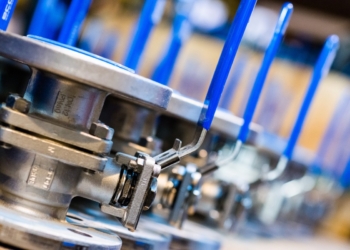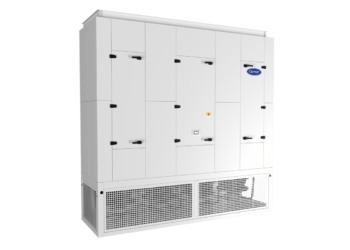Huawei named a leader for container management
Author: Joe Peck

Chinese multinational technology company Huawei has been positioned in the ‘Leaders’ quadrant of American IT research and advisory company Gartner‘s Magic Quadrant for Container Management 2025, recognising its capabilities in cloud-native infrastructure and container management.
The company’s Huawei Cloud portfolio includes products such as CCE Turbo, CCE Autopilot, Cloud Container Instance (CCI), and the distributed cloud-native service UCS. These are designed to support large-scale containerised workloads across public, distributed, hybrid, and edge cloud environments.
Huawei Cloud’s offerings cover a range of use cases, including new cloud-native applications, containerisation of existing applications, AI container deployments, edge computing, and hybrid cloud scenarios. Gartner’s assessment also highlighted Huawei Cloud’s position in the AI container domain.
Huawei is an active contributor to the Cloud Native Computing Foundation (CNCF), having participated in 82 CNCF projects and holding more than 20 maintainer roles. It is currently the only Chinese cloud provider with a vice-chair position on the CNCF Technical Oversight Committee.
The company says it has donated multiple projects to the CNCF, including KubeEdge, Karmada, Volcano, and Kuasar, and contributed other projects such as Kmesh, openGemini, and Sermant in 2024.
Use cases and deployments
Huawei Cloud container services are deployed globally in sectors such as finance, manufacturing, energy, transport, and e-commerce. Examples include:
• Starzplay, an OTT platform in the Middle East and Central Asia, used Huawei Cloud CCI to transition to a serverless architecture, handling millions of access requests during the 2024 Cricket World Cup whilst reducing resource costs by 20%.
• Ninja Van, a Singapore-based logistics provider, containerised its services using Huawei Cloud CCE, enabling uninterrupted operations during peak periods and improving order processing efficiency by 40%.
• Chilquinta Energía, a Chilean energy provider, migrated its big data platform to Huawei Cloud CCE Turbo, achieving a 90% performance improvement.
• Konga, a Nigerian e-commerce platform, adopted CCE Turbo to support millions of monthly active users.
• Meitu, a Chinese visual creation platform, uses CCE and Ascend cloud services to manage AI computing resources for model training and deployment.
Cloud Native 2.0 and AI integration
Huawei Cloud has incorporated AI into its cloud-native strategy through three main areas:
1. Cloud for AI – CCE AI clusters form the infrastructure for CloudMatrix384 supernodes, offering topology-aware scheduling, workload-aware scaling, and faster container startup for AI workloads.
2. AI for Cloud – The CCE Doer feature integrates AI into container lifecycle management, offering diagnostics, recommendations, and Q&A capabilities. Huawei reports over 200 diagnosable exception scenarios with a root cause accuracy rate above 80%.
3. Serverless containers – Products include CCE Autopilot and CCI, designed to reduce operational overhead and improve scalability. New serverless container options aim to improve computing cost-effectiveness by up to 40%.
Huawei Cloud states it will continue working with global operators to develop cloud-native technologies and broaden adoption across industries.
For more from Huawei, click here.








